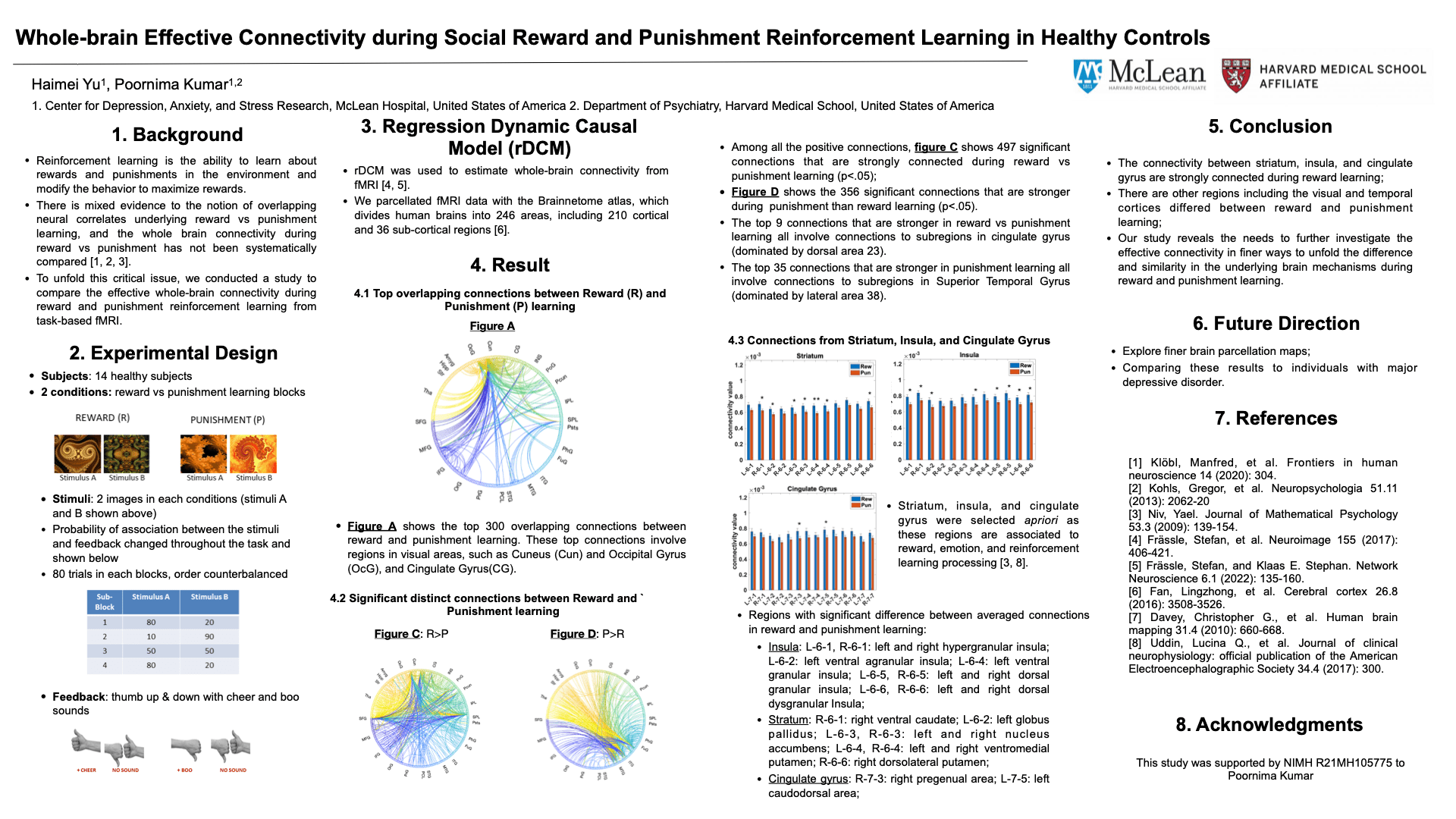Scientific Abstract
Background: Reinforcement learning is the ability to learn about rewards and punishments in the environment and modify the behavior to maximize rewards. There is mixed evidence to the notion of overlapping neural correlates underlying reward vs punishment learning, and the whole brain connectivity has not been systematically compared. To unfold this critical issue, we conducted a study to compare the effective whole-brain connectivity during reward and punishment reinforcement learning from task-based fMRI.
Methods: Fourteen healthy participants completed one block of reward and one block of punishment learning task. We utilized regression dynamic causal model (rDCM) to extract effective brain connectivity among 246 brain regions based on the Brainnetome atlas. We then compared the shared and distinctive connectivity between regions during reward and punishment learning.
Result: In this explorational study, we found 52997 overlapped positive connections between reward and punishment learning, of which 14359 were significant in a one-sample t-test (p<.05). The strongest connections that overlapped during reward and punishment learning involved visual cortex and cingulate gyrus. The overall connectivity between the striatum, insula, and cingulate gyrus (CG) regions were stronger during reward learning, 456 connections were stronger in punishment learning (p<.05) when directly comparing the connections between ROIs. These connections involved visual areas and superior frontal gyrus.
Conclusion: Overall, we observed that the connectivity between striatum, insula, and cingulate gyrus are strongly connected during reward learning; however, other regions such as visual and temporal cortices also differed between reward and punishment learning. Our study reveals the needs to further investigate the effective connectivity in finer ways to unfold the difference and similarity in the underlying brain mechanisms during reward and punishment learning. Future direction will include exploring finer brain parcellation maps and comparing these results to individuals with major depressive disorder.
Search posters

